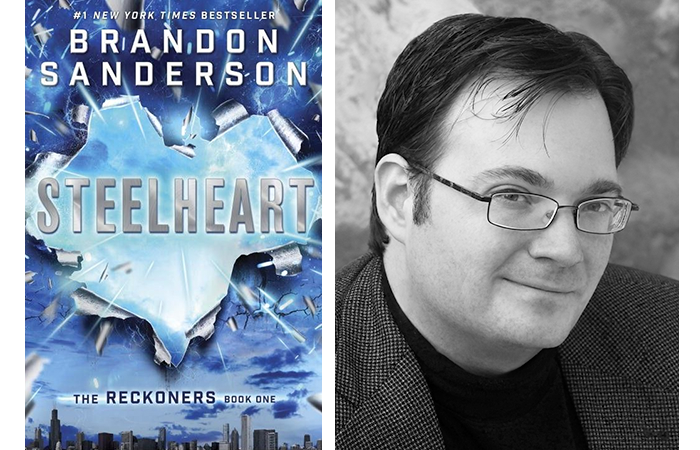Brandon Sanderson on Why We Still Read Books In the Internet Era

#GetPopCultured kicks off today with Preview Weekend! Come on in to your local B&N, where we’ll be featuring the works of many authors—including Brandon Sanderson, who joins us on the blog today to talk about why books are still so popular in the internet age.
I find it remarkable that the novel, as an entertainment medium, is still around.
As technology has continued its frantic progression, most of the peripheral advantages books had over other media have vanished. Once upon a time, if you wanted to carry a story with you, a book was your only choice. (Short of hauling your grandfather around and asking about the war.) Now, my pocket can produce a near-endless stream of preschooler shows to keep my children entertained.
We used to say that no movie could match the unlimited special-effects budget a book could provide, but computers, greenscreens, and effects gurus have beautifully rendered sequences from books that I once thought could never be filmed. (Indeed, we live in an era of effects one-upmanship, to the point that “great visual effects” isn’t a selling point for me on a film anymore. So why would it be for a novel?)
Movies, video games, and television shows are delivered to us on demand, suited to our schedules—unless you’re really, really secluded, anytime you could be reading a book, chances are you could be watching a film instead. (An article I read recently proclaimed that even base camp at Mount Everest has Internet access. Which leaves me wondering why I can only get 2G at my father-in-law’s house.)
In the face of all these distractions, despite the worries of your high school English teachers, books are actually thriving. Gallup polls indicate that more people are reading books now than did in the past. We keep coming back to the novel. Why? The novel must offer something other forms of media do not—and I have a theory about what it is. It’s not special effects, portability, or the option to “rewind” or search with ease.
It’s that a good novel is unfinished.
This is important. An excellent film can do amazing things, and I love the medium. Part of the beauty of a film is in the large number of people it requires to make one—many people with different talents and visions join forces in a great film, lending their individual expertise to make it all come together.
By contrast, a book’s story is produced by very few people. Usually it’s one author, aided by a talented editor. In publishing we have a production and art staff to create the finished product, but we don’t have separate assistant directors, location teams, directors of photography, lighting technicians, set designers, or the multitude of other people who team up to create the visuals you get in a film. (Not to mention the actors.)
We don’t need any of these people because we have you. Novels, I’m convinced, continue to thrive because of their participatory nature. A book is a script, and to use the movie metaphor, you are the director. You get to decide how the characters sound and look. You create the sets, painting them from the ground up based on a few words here and there. The most powerful images in books tend to be not the ones involving pages and pages of detailed description, but the ones involving a few choice phrases that act like a catalyst—a starter vine that the reader can grow into a forest.
As an author, I think it’s important to be aware of this relationship. My job is not to give you everything; it’s to give you enough. But in return, my art does not come alive until it is experienced. A novel is unfinished without a reader—and while a film lives a single powerful life, a book lives a new life every time it is read.
This is what I love about novels, and this is why they continue to be a relevant and powerful storytelling medium.
All of you readers out there, thank you for making my art live.
—Brandon Sanderson
Head to your B&N to pick up FREE samplers of Brandon Sanderson’s The Way of Kings and Mistborn—supplies are limited. And be sure to pre-order Steelheart, which goes on sale September 23, 2014.